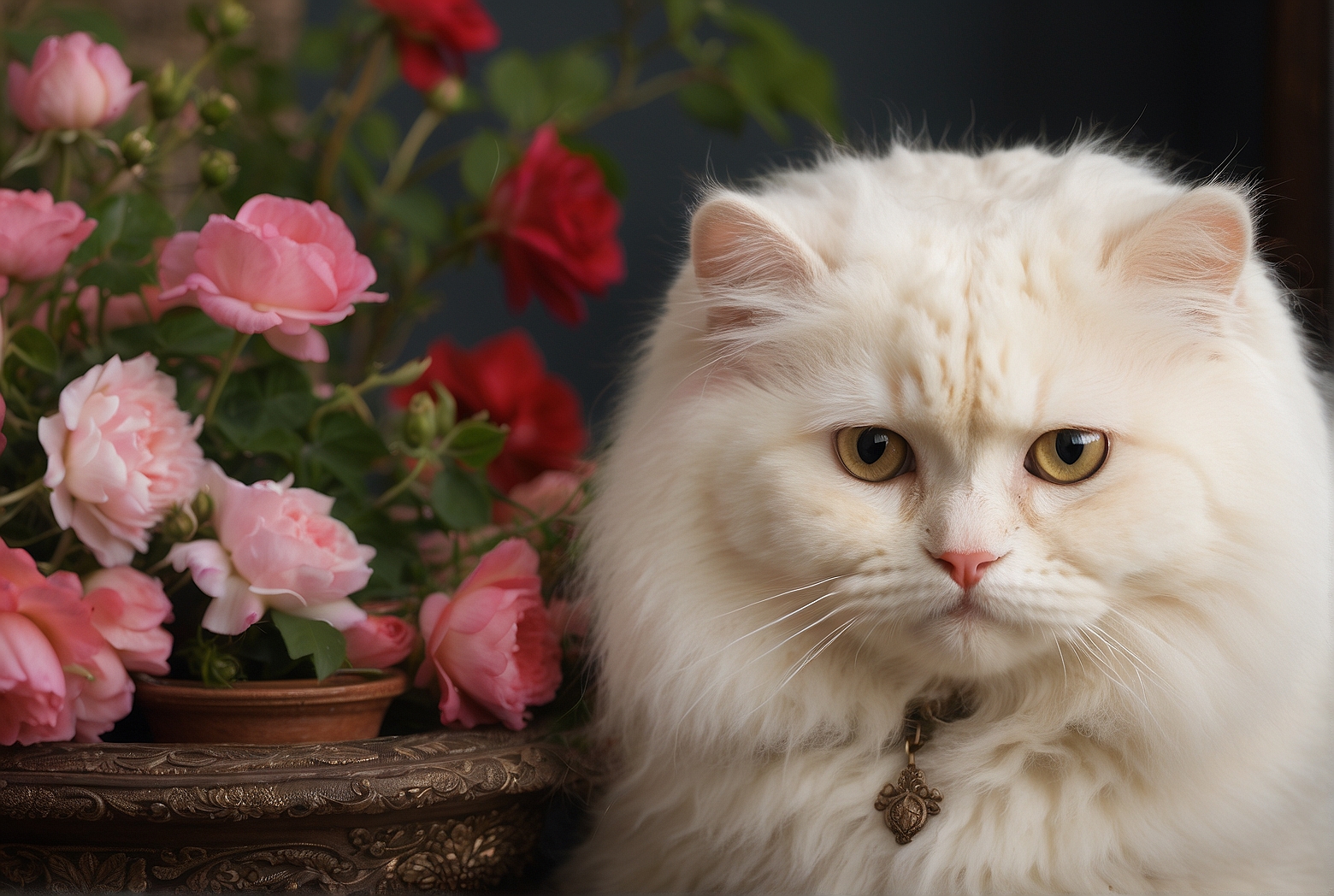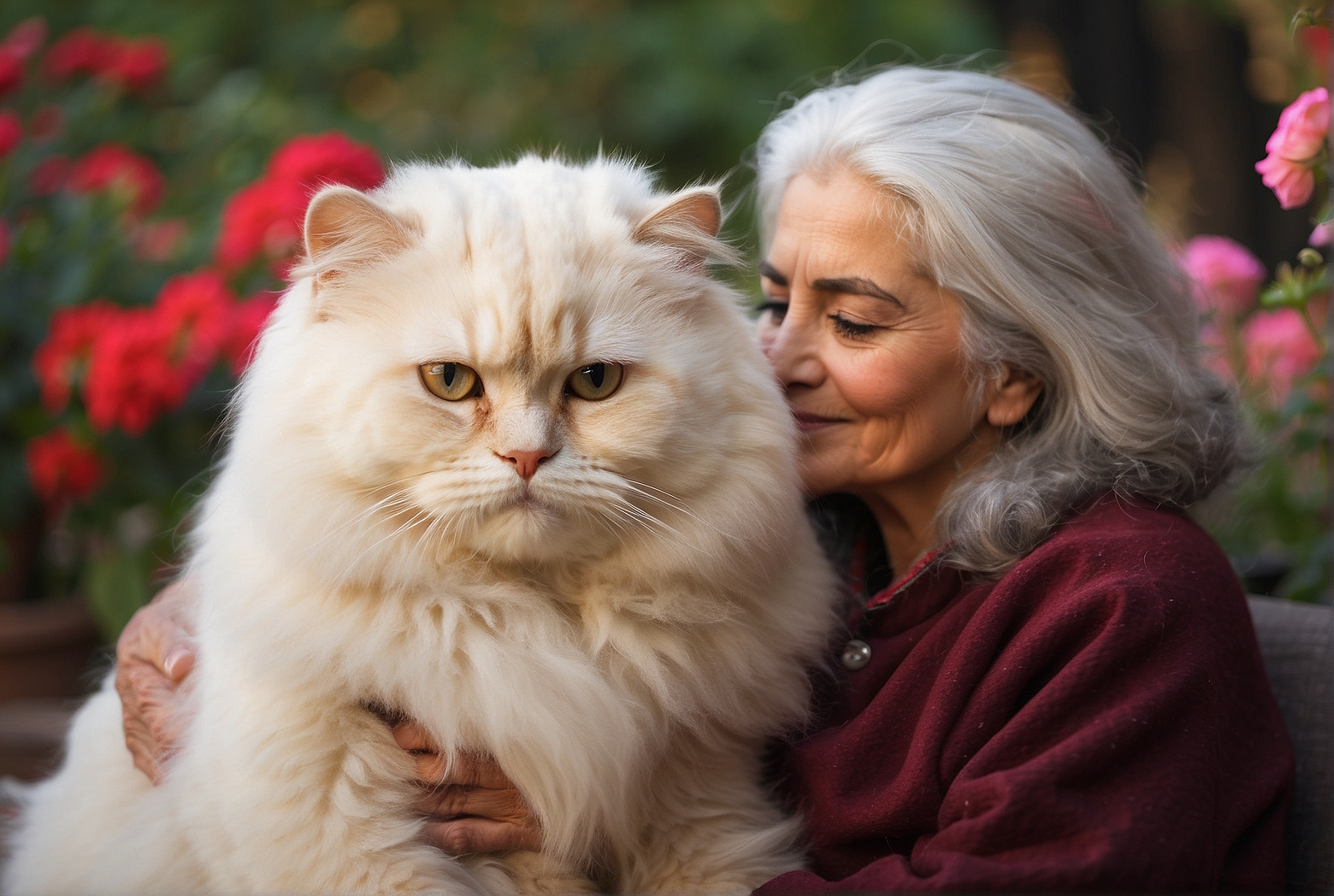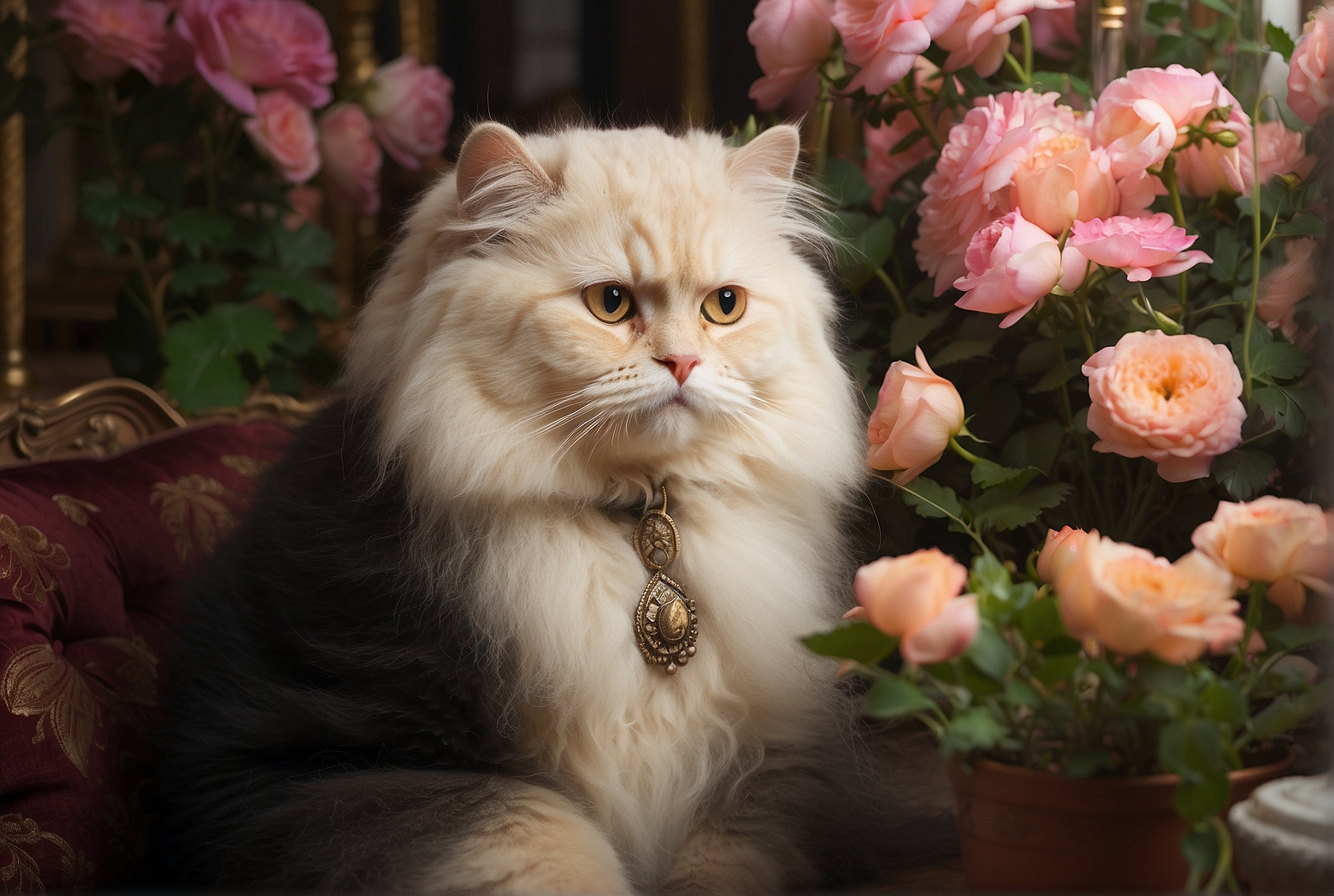Have you ever wondered if Persians, the adorable feline breed known for their fluffiness and striking features, become even more affectionate as they grow older? As Persian cats age, it is often observed that they develop a deeper affectionate side, showering their owners with more love and attention. Their gentle nature seems to blossom, turning them into even more cuddly companions. In this article, we will explore the intriguing topic of whether Persians get more affectionate with age and uncover the heartwarming experiences of Persian cat owners.
Understanding Persian Cats
Origin and History
Persian cats, known for their luxurious long coats and expressive eyes, have a rich history that dates back centuries. Originating from Persia (modern-day Iran), these elegant felines were treasured companions to the nobility and royalty of the Persian empire. Initially, Persian cats were seen as a symbol of wealth and beauty, and their popularity quickly spread across the globe.
Physical Characteristics
One of the defining features of Persian cats is their lush, thick coat, which requires regular grooming to maintain its beauty. They have a distinctive round face with large, expressive eyes, a short, broad nose, and small, rounded ears. Persian cats come in a wide variety of coat colors and patterns, such as solid colors, tortoiseshell, tabby, and color-point. Their bodies are generally medium to large in size, with a sturdy build and a graceful, slow movement.
Personality Traits
Persians are renowned for their gentle and calm nature. They have a relaxed disposition and tend to be quiet and undemanding. These cats enjoy a peaceful and serene environment, preferring a slower-paced lifestyle. While they may not be as active or playful as some other cat breeds, their affectionate and loving nature more than make up for it. Persians are known for their loyalty and devotion to their human companions.
The Development of Affection in Persian Cats
Bonding with Owners
Persian cats have a strong capacity for bonding with their owners. From a young age, they form deep emotional connections and become attached to their human caregivers. This bond is nurtured through consistent interaction, affectionate gestures, and a loving environment. As the cat grows older, this bond only strengthens, leading to increased affection and a deeper sense of trust.
Socialization Experiences
Socialization plays a crucial role in the development of a Persian cat’s affectionate behavior. Early exposure to a variety of people, animals, and environments helps them become more comfortable and confident in different situations. Positive socialization experiences enable them to form secure attachments and develop a greater propensity for affection.

Environmental Factors
The environment in which a Persian cat lives can have a significant impact on its affectionate behavior. A peaceful and stable home with loving and attentive caregivers will encourage the cat to feel safe, secure, and loved. On the other hand, a chaotic or stressful environment can lead to anxiety and hinder the cat’s ability to express affection. Providing a calm and nurturing setting will contribute to a more affectionate Persian cat.
Persians and Aging
Changes in Behavior
As Persian cats age, their behavior may undergo some changes. While individual experiences may vary, it is not uncommon for older Persians to become more affectionate. They may seek out more physical contact, enjoy being cuddled, and become more responsive to their owner’s presence. This increased affection is often a result of the deepening bond that has developed over the years.
Health Conditions
Age-related health conditions can also impact a Persian cat’s behavior and, consequently, their level of affection. Conditions such as arthritis or dental problems may cause discomfort, leading to changes in behavior and a potential decrease in affectionate behavior. It’s essential to address any health concerns promptly and ensure that the cat receives proper veterinary care to maintain their overall well-being.
The Impact of Routine and Familiarity
Routine and familiarity are crucial to a Persian cat’s well-being, especially as they age. These cats thrive on predictability and feel most comfortable when their environment remains consistent. By maintaining a stable routine and providing familiar surroundings, Persian cats can continue to feel secure and loved, fostering their affectionate behavior throughout their later years.
Factors Influencing Affectionate Behavior
Genetic Predisposition
Genetics play a role in determining a Persian cat’s inherent personality traits, including their capacity for affection. Some cats may have a genetic predisposition towards being more affectionate, while others may be naturally more reserved. It is important to remember that each cat is an individual with their own unique personality, influenced by both genetics and environmental factors.
Environment and Care
The environment in which a Persian cat is raised and the care it receives can strongly influence its affectionate behavior. Providing a loving and nurturing environment, consistent socialization, and regular interaction with humans can encourage and reinforce affectionate tendencies. Conversely, neglect or lack of positive experiences may lead to a cat being less inclined to display affection.

Individual Personality
Just like humans, cats have individual personalities that shape their behavior. Some Persian cats may naturally be more affectionate, while others may be more independent. It is important to recognize and respect each cat’s personality and not force affection if it is not natural to them. Understanding and appreciating their unique traits will strengthen the bond between you and your Persian cat.
Signs of Affection in Persians
Grooming Behaviors
Persian cats are known for their fastidious grooming habits, and grooming can be a sign of affection. When a Persian cat grooms itself or another cat, it is not only maintaining its coat but also expressing care and love. If a Persian cat grooms you, it is a clear indicator of trust and affection.
Physical Contact and Cuddling
Persians are often described as being “lap cats” due to their love of physical contact and cuddling. They enjoy being close to their owners, whether it’s sitting on their lap, curled up next to them, or snuggling in bed. Seeking out physical contact and displaying affection through cuddling are unmistakable signs of a loving Persian cat.
Purring and Vocalizations
Purring is a well-known sign of contentment and happiness in cats, and Persian cats are no exception. When a Persian cat purrs while being petted or spending time with its owner, it is expressing joy and satisfaction. Additionally, some Persian cats may vocalize with gentle meows or chirps as a means of communication and a display of affection.
Adapting to Aging Persians
Providing a Comfortable Environment
As Persian cats age, it is important to create a comfortable and safe environment that caters to their changing needs. Providing cozy and accessible sleeping areas, minimizing unnecessary noise, and ensuring easy access to food, water, and litter boxes will contribute to their overall well-being and help them maintain their affectionate behavior.
Maintaining Regular Veterinary Care
Regular veterinary care is crucial for aging Persian cats. By scheduling routine check-ups, vaccinations, and screenings, potential health issues can be identified and addressed early on. Maintaining their physical health plays a significant role in their emotional well-being, which in turn affects their ability to display affection.
Adjusting Daily Routine
As Persian cats age, they may have different energy levels and requirements, necessitating adjustments to their daily routine. Approaching their daily activities with patience and adaptability will help meet their changing needs and ensure they continue to feel loved and supported. Adapting playtime, feeding schedules, and interaction to suit their physical abilities will allow them to remain affectionate and engaged.
Understanding Aging-related Changes
Reduced Activity Level
One common change that occurs as Persian cats age is a decrease in physical activity. They may become less inclined to engage in vigorous play and prefer quieter activities. Understanding and respecting their reduced activity level is crucial, as it is a natural part of the aging process.
Joint and Mobility Issues
Just like humans, aging can bring about joint and mobility issues in Persian cats. Conditions such as arthritis can cause discomfort, leading to decreased mobility and potentially impacting their ability to engage in affectionate behavior. Keeping an eye out for signs of pain and providing appropriate pain management can help maintain their comfort and overall affectionate nature.
Cognitive Decline
As Persian cats age, they may experience cognitive decline, which can manifest in various ways. They may become disoriented, forgetful, or have difficulty recognizing familiar people or places. Patience and understanding are key when interacting with an aging Persian cat, ensuring they feel loved and supported throughout any cognitive changes they may experience.
Helping Aging Persians Stay Affectionate
Promoting Interactive Play
While older Persian cats may not have the same level of energy as their younger counterparts, they can still benefit from interactive play sessions. Engaging with them in gentle play using toys that cater to their physical abilities can stimulate their minds and keep their bond with their owner strong.
Maintaining Social Interaction
Regular social interaction is essential for aging Persian cats. Spending quality time together, providing opportunities for gentle petting and cuddling, and engaging in calm activities will reinforce their affectionate behavior. Being consistently present and available to them will help to maintain their strong bond with their human companion.
Providing Mental Stimulation
As Persian cats age, mental stimulation becomes increasingly important to keep their minds active and engaged. Puzzle toys, treat-dispensing toys, and interactive games can help provide the mental stimulation that aging cats need. This mental enrichment contributes to their overall well-being and promotes continued affectionate behavior.
Caring for Senior Persians
Special Dietary Needs
As Persian cats age, their nutritional needs may change. It is important to provide them with a balanced diet that addresses their specific aging-related requirements. Consultation with a veterinarian is recommended to determine the appropriate diet and any necessary supplements to support their overall health and maintain their affectionate nature.
Health Monitoring
Regular health monitoring is crucial for senior Persian cats. Keeping track of their weight, watching for signs of pain or discomfort, and observing any changes in behavior are essential in detecting potential health issues. Early intervention and proactive healthcare will help ensure that these cats continue to lead comfortable and affectionate lives.
Comfortable Sleeping Spaces
Comfortable sleeping spaces are essential for senior Persian cats. Providing soft bedding, cozy hideaways, and warm spots where they can rest undisturbed will contribute to their overall comfort and help them age gracefully. Feeling secure and comfortable in their sleeping areas positively affects their ability to display affection.
Conclusion
Persian cats are known for their affectionate nature, and as they age, their capacity for showing love and devotion only grows. Understanding their origins, personality traits, and the factors that influence their affectionate behavior can foster a stronger bond between these majestic felines and their human companions. By adapting to their changing needs and providing a loving and nurturing environment, aging Persian cats can continue to be cherished members of the family, displaying their affection in unique ways that warm our hearts for years to come.
